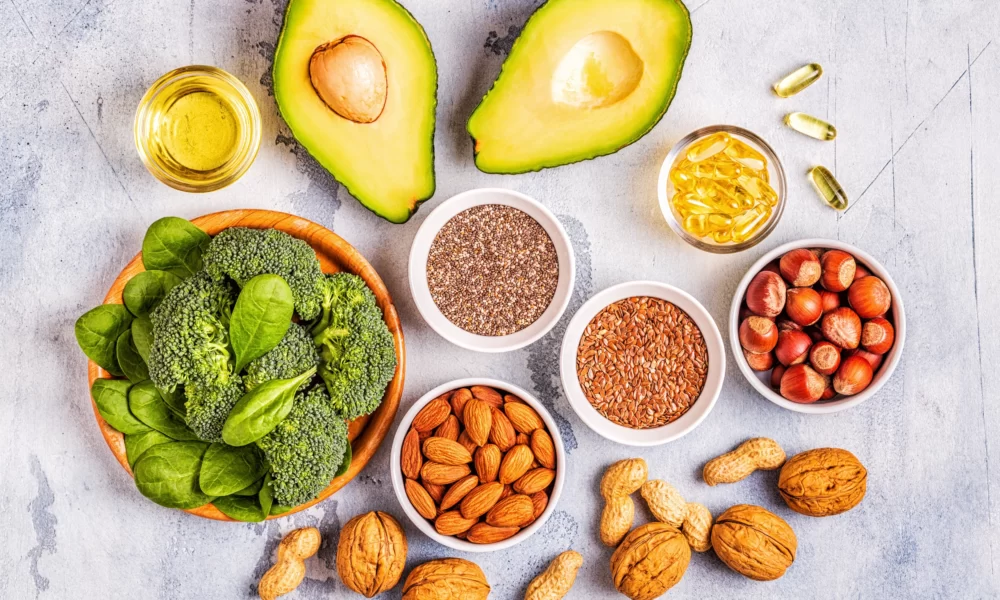In recent years, there has been a growing interest in diets that promote health and weight loss. Two popular diets that have gained traction are the ketogenic diet and plant-based diet. Both diets have their own unique benefits and drawbacks, but which one is better?
The ketogenic diet is a low-carb, high-fat diet that aims to put the body in a state of ketosis, where it burns fat for energy instead of carbohydrates. On the other hand, a plant-based diet emphasizes whole, unprocessed plant foods and eliminates or minimizes animal products.

Points to remember:
Before deciding which diet is best for you, it’s important to consider a few key factors: Personal health goals: Are you looking to lose weight, improve overall health, or manage a specific health condition?
Nutrient deficiencies: Both diets have the potential to cause nutrient deficiencies if not properly balanced.
Sustainability: Can you realistically maintain the diet long-term, or is it just a short-term fix?
Lifestyle: Do you have any ethical or religious considerations that may affect your food choices?
Individual needs: Every person’s nutritional needs are different, and what works for one person may not work for another.

FAQ’s
Is the ketogenic diet safe?
The ketogenic diet can be safe for healthy individuals, but it may not be suitable for everyone, especially those with certain medical conditions. It’s important to consult with a healthcare professional before starting the diet.
Can a plant-based diet provide enough protein?
Yes, a well-planned plant-based diet can provide all the essential amino acids needed for protein synthesis. Sources of plant-based protein include beans, lentils, tofu, tempeh, nuts, and seeds.
Is the ketogenic diet effective for weight loss?
Yes, the ketogenic diet can be effective for weight loss, as it promotes fat burning and reduces hunger. However, weight loss is not guaranteed, and it’s important to maintain a calorie deficit for long-term success.
Can a plant-based diet help prevent chronic diseases?
Yes, a plant-based diet has been linked to a reduced risk of chronic diseases such as heart disease, diabetes, and certain types of cancer.
Are there any potential side effects of the ketogenic diet?
Yes, some people may experience side effects such as constipation, headaches, and bad breath. It’s also important to monitor cholesterol levels, as the high intake of saturated fat in the diet can increase cholesterol levels in some individuals.

5 Pros of the Ketogenic Diet:
Rapid weight loss: The ketogenic diet promotes fat burning and reduces hunger, leading to rapid weight loss in some individuals.
Improved blood sugar control: The diet can improve insulin sensitivity and reduce blood sugar levels in individuals with type 2 diabetes.
Reduced inflammation: The ketogenic diet has been shown to reduce inflammation, which is a risk factor for many chronic diseases.
Improved cognitive function: Some studies suggest that the ketogenic diet may improve cognitive function and reduce the risk of neurodegenerative diseases.
Increased energy levels: The diet can improve energy levels and mental clarity in some individuals.

5 Cons of the Ketogenic Diet:
Nutrient deficiencies: The diet may lead to deficiencies in certain nutrients, including fiber, potassium, magnesium, and vitamins C and K.
Difficulty maintaining the diet long-term: The restrictive nature of the diet can make it difficult to maintain long-term.
Side effects: Some people may experience side effects such as constipation, headaches, and bad breath.
High intake of saturated fat: The diet is high in saturated fat, which can increase cholesterol levels in some individuals. Limited food options: The diet restricts many carbohydrate-rich foods, which can make meal planning and eating out more challenging.

5 Pros of a Plant-Based Diet:
Lower risk of chronic diseases: Plant-based diets have been linked to a lower risk of chronic diseases, including heart disease, type 2 diabetes, and certain types of cancer.
Nutrient-dense: Plant-based diets are typically rich in nutrients, including fiber, vitamins, and minerals.
Environmentally sustainable: Plant-based diets have a lower environmental impact compared to diets that rely heavily on animal products.
Increased lifespan: Studies have shown that following a plant-based diet may increase lifespan and reduce the risk of premature death.
Improved digestion: Plant-based diets are typically high in fiber, which can improve digestion and promote regular bowel movements.

5 Cons of a Plant-Based Diet:
Potential nutrient deficiencies: Plant-based diets may be lacking in certain nutrients, including vitamin B12, iron, and omega-3 fatty acids.
Limited food options when eating out: It can be challenging to find plant-based options when eating out at restaurants or social gatherings.
Social pressure: Some individuals may face social pressure from friends or family members who do not understand or support their dietary choices.
Higher carbohydrate intake: Plant-based diets tend to be higher in carbohydrates, which can lead to higher blood sugar levels in individuals with type 2 diabetes.
Difficulty getting enough protein: Plant-based diets may require more planning to ensure adequate protein intake, especially for athletes or individuals with higher protein needs.

Final Verdict:
Both the ketogenic diet and plant-based diet have their own unique benefits and drawbacks. Ultimately, the best diet for an individual depends on their personal health goals, nutrient needs, and lifestyle. It’s important to consult with a healthcare professional or registered dietitian before starting any new diet to ensure that it is safe and appropriate for individual needs.
If weight loss is the primary goal, the ketogenic diet may be a more effective choice in the short-term, but it may be difficult to maintain long-term. On the other hand, a plant-based diet may be a better choice for overall health and disease prevention, but it may require more planning to ensure adequate nutrient intake.
It’s also worth noting that a hybrid approach is possible, where elements of both diets are incorporated to create a customized eating plan that meets individual needs and preferences. Ultimately, the key to long-term success is finding a sustainable and enjoyable way of eating that supports individual health and wellness goals.
Comparing Keto and Plant-Based Diets: What You Need to Know












No Comment! Be the first one.